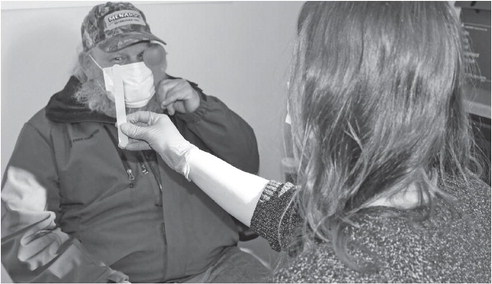Seeing beyond a low vision diagnosis February is Low Vision Awareness Month


Randy lost most of his vision in both eyes due to a stroke last February. Limited to only light perception and given no hope of recovering his eyesight, Randy began adjusting to h...




